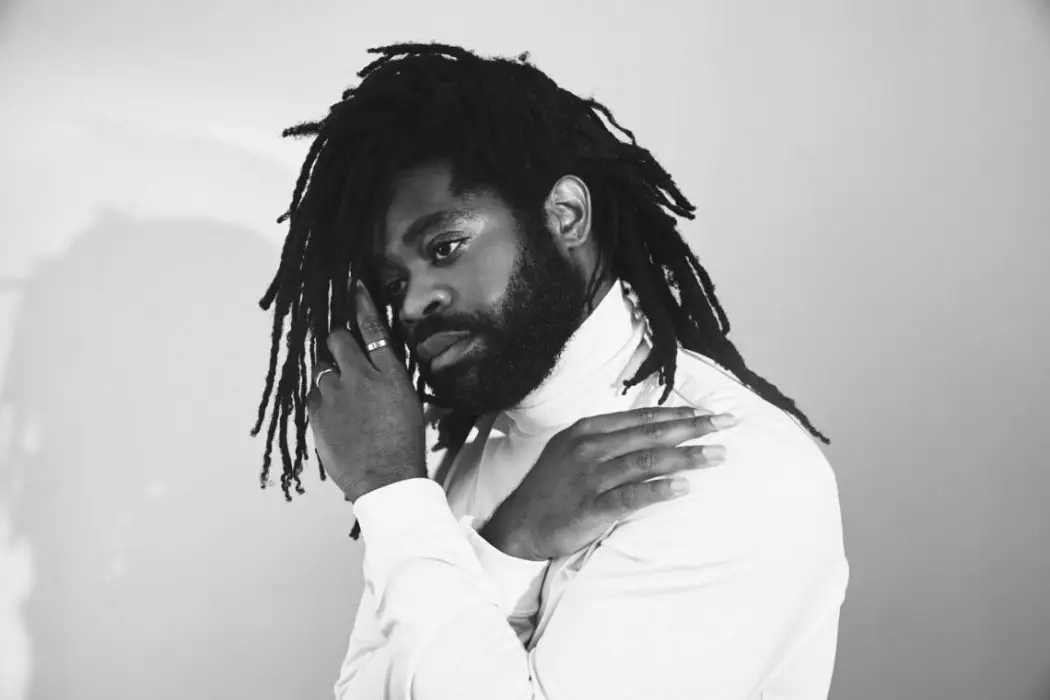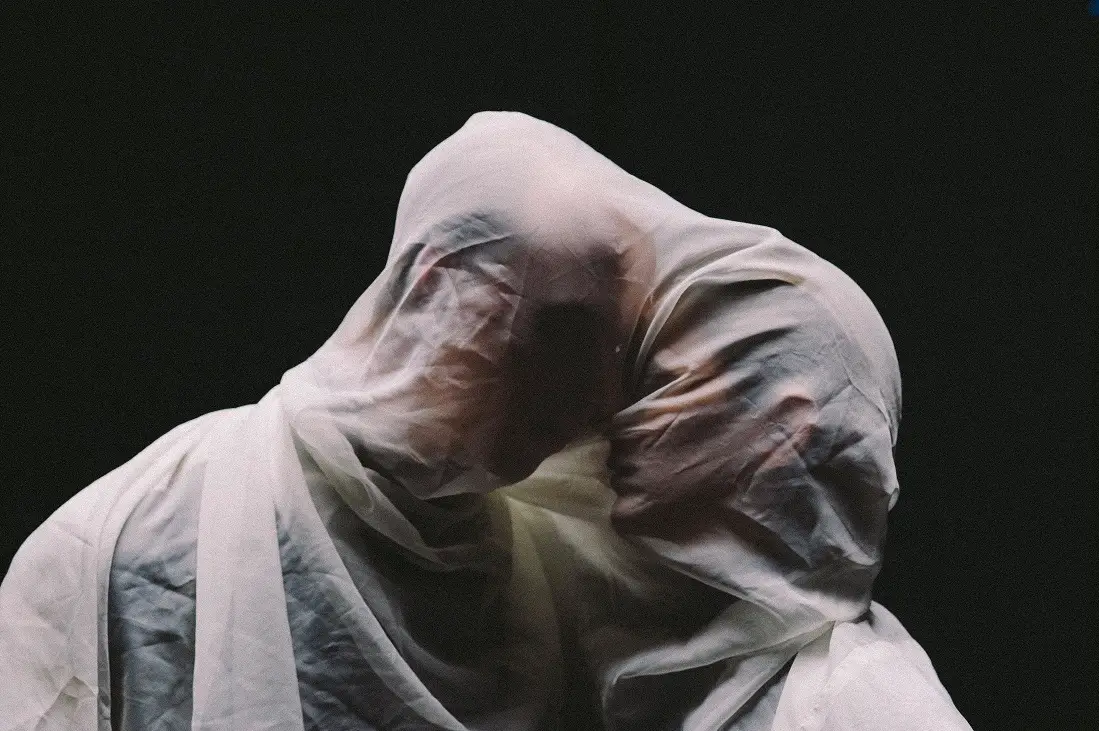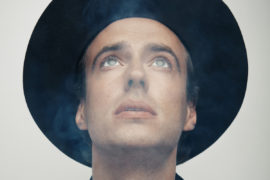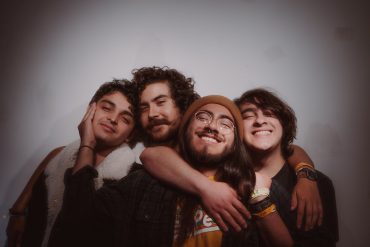R.LUM.R remains ever mindful of himself and the art he puts forth into the universe; he is equal parts creative and contemplative.
— —
“My hope is always that I give back to the world what it gave to me, which is the words and the sounds and how to be able to codify these emotions that people sometimes feel,” explains Reggie Williams. Williams, best known by his stage moniker R.LUM.R, is nothing short of a megalith talent full of honesty and redolence. His debut LP, Surfacing, was released on the 1st of November via Island Records, and further proves R.LUM.R as a powerhouse force of R&B greatness that should not be overlooked. Surfacing showcases humanity in its rawest forms, as R.LUM.R allows listeners a glimpse into his innermost thoughts and emotions.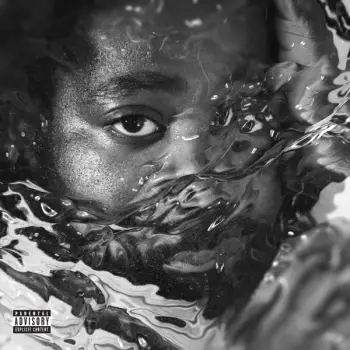
Throughout Surfacing, R.LUM.R remains thoughtful and erudite, eloquently elucidating on his experiences in life and love. Though the album provides insight to one man’s most personal feelings, it still manages to evoke ubiquitous themes of loss, heartache, and growth. Tracks like “Cold” and “How This Feels” provide lessons in heartache and heartbreak, while songs like “Making a Choice” and “Lonely” – the album’s opener and closer, respectively – illustrate more personal ideals relating to anxieties and fears. Surfacing is a brilliantly emotional and expansive narrative, masterfully curated by a brilliantly emotional and expansive artist; it is truly genuine thanks to true ingenuity.
R.LUM.R remains equally cognizant external from his art, too. Ever mindful of himself and the art he puts forth into the universe, he is equal parts creative and contemplative. “I’d like people to say, “He was truthful and meaningful.” If it’s about the music, I’d like the same, but from other people’s perspective,” R.LUM.R says. “We all attach ourselves to things the way that we need to; take from it what you need. […] It’s not really about me, to be honest; I’m just a kind of conduit.”
Listen: Surfacing – R.LUM.R
:: A CONVERSATION WITH R.LUM.R ::
Atwood Magazine: Congrats on Surfacing! How do you feel? What do you think, now that you’ve evolved into this new era?
R.LUM.R: Yeah, the new LP! It’s wild! Everything I know that I’m saying on this thing, I know that it’s important. I believe that it’s gonna affect people personally, and in ways that I think are helpful. There may be some things that some people are upset by, I suppose, but I don’t care, because I’m just speaking about my perspective and where I come from, and the things I’ve seen in my life and the things that I’ve felt, and trying to figure them out. My hope is always that I give back to the world what it gave to me, which is the words and the sounds and how to be able to codify these emotions that sometimes people feel. And how I feel personally about it, is strangely ambivalent. I’m just kind of zen about it. People say that it’s like giving birth, right? But, it’s really not; it’s like, you participated in the birth of the thing, and raised it for a couple years, and now it’s going off to school. At this point, I can’t — parents can’t be there in every single classroom, holding your hand, making sure the world affected you the way that they wanted it to — it’s just got to be ready. You just gotta go out there and be ready, and just adapt. So, I’m trusting it; I taught it how to read and write and ride a bike, gave it some knee pads and a helmet, and sent it on its way. Good luck.
That’s a great mindset, though. That’s a really important way to look at art, because at some point, it just is what it is.
R.LUM.R: Yeah, at some point, it’s no longer my story. I’d rather hear people’s reactions and other people’s stories with it.
I think in order to develop, and to continue to hear that word, evolution, is a good thing.
And it really is just so cool to see, because I’ve been following you for a couple of years, seeing the evolution of your songwriting, your song making, because I feel like now, at least as a listener, it feels a lot more raw and a lot more honest - not discounting your previous music, but it really feels like you have come into your own in what you want to say. Do you feel like your songwriting has grown?
R.LUM.R: I feel like your assessment of it is fair. And if someone gets their feelings hurt by you telling them that their current work is more honest, then they have a fucked-up perspective, because that’s the goal. It’s to continue to mine, to continue to dig deeper — I was going to say for better diamonds, but I hate that analogy. But, you know what I’m saying? It’s better when you continue to dig deeper and find new ways and new combinations and new things that are so interesting about emotions, and the subject matters. Because I’ve been writing about, like, basically time and my perceptions of it, and using it wisely, and not getting old and shit like that. The stuff that goes on in my brain, since I’ve had a brain, you know? I’m finding new ways to make that interesting, and saying things that are important, and saying things that you really want to be saying live on the road for the rest of your life, it’s important. I think in order to develop, and to continue to hear that word, evolution, is a good thing. I think I definitely have, just as a writer, as someone who loves words and combinations of such, I sometimes get verbose on some older stuff — and, looking back, sometimes even unnecessarily so. And it’s definitely nice to just get up on stage and say something as blatant as, like, the lyrics to “Give Me A Reason.” That’s such a blunt song. It feels like refinement, and that’s part of the idea of it, of me calling the album Surfacing. Coming up from hiding, and coming up from the fear of maybe saying things that I feel need to be said. And maybe there’s a little part of me that just doesn’t give a fuck anymore? [Laughs] I think it’s helpful in that process.
Listen: “Give Me a Reason” – R.LUM.R
So, has there been any sort of unique fan reaction, or reactions, to the newer stuff, where you were like, “Yes! I’m glad that you get it,” or do you not care whether people “get it” or not?
R.LUM.R: Yeah, I do care, but I can’t make them feel things. Of course I care, but you have to trust, like sending your kid off to kindergarten, you have to trust it’ll be figured out. You gave them all the tools that he or she or they needed to make the right decisions at the right time. I can’t stand with you every time. But, if somebody beats up my child, I’m gonna get protective, you feel me? So, I do care, and of course I care if somebody “gets it.”
Well, has there been a specific reaction that had you feeling like, “Yes”?
R.LUM.R: Okay, take, for instance, “Boys Should Never Cry.” People have definitely reacted to just the sticker shock of the title. And people would be like, “Well, that’s really bad, boys should be able to cry,” and I’m like, “No, no, no, listen to the song.” But then, some people get it; and that’s the thing, some people are just into music for the vibe and how it feels, and some people are really into it for the lyrics. Neither opinion or option is better, but one is definitely going to inform you better about the music than the other, or at least the intention of the music more than the other, and you’ll be more informed to have a conversation. I remember, I have a friend, and I showed him a demo track like two-ish years ago, and he said, “This is the most you that I’ve ever heard you be.”
Listen: “Boys Should Never Cry” – R.LUM.R
So, in terms of your song-making processes, I know that you’re classically trained in guitar, but the importance of lyrics is paramount; do you start with lyrics first, or get on the guitar and get a guitar part going first?
R.LUM.R: I wish that it was routine. I do have a routine as far as me sitting down and attempting to make something; I do have a routine as far as input, and attempting to make things, but it definitely is unpredictable for me as far as getting something that I actually think is really good and really meaningful. Like, for instance, “Lonely,” I was in the studio with this guy Scott, he goes by Babydaddy, and we were in the studio, and I was just really sad that day. And I do remember I just started playing guitar, and I did just feel super lonely that day, because I think it was like, week three of a writing trip, and basically on those writing trips all you see are hotels and the studio, with a brand new set of people almost every day. And for me, I’m an introvert, so that’s really draining for me. So at the end of it, when you’re on your last leg, sometimes that’s when you get your most personal, honest shit; you’re too tired to keep up the defenses anymore. So, I would say that most of my music starts emotionally. Practically how that comes out is always different, but it definitely is always like an, “Oh shit,” I just saw something, or I feel something, or I read a sentence somewhere and that made me think of something else.
Do you find yourself writing little notes throughout the day?
R.LUM.R: Yeah, I keep notes all the time. I always thought that was weird, but then I found out Chris Martin from Coldplay does it, and I was like, “Okay, he’s done pretty well for himself.”
Success is continuing to be honestly connected with the things that are important.
Inspiration can come from anywhere! So, do you think that your songwriting process is usually pretty drawn out? Does it take a while, because of all of the emotional and mental factors that also play into it? Or, are you able to, once you get into a groove, to just knock it out pretty quickly?
R.LUM.R: Honestly, I oscillate pretty heavily between the two. To view those two options that you gave as two ends of the spectrum, I definitely pendulum back and forth at varying speeds. Personally, I know that I’m the kind of writer — I know a lot of people, and here in Nashville specifically, who can pump a song out everyday and be stoked on it every day — and sometimes I’m like, “Whoa, I’ve got three records’ worth of stuff in two months,” and sometimes, it feels like I have nothing to say, or I don’t want to write, and I want to go live my life and go do stuff and go places. I grew up super poor, so now that I’m able to travel a little bit now, I really like to do that; to go places, and see stuff, and walk around my neighborhood right now with the trees changing — growing up in Florida, it doesn’t happen. So, again, I wish it was predictable, but it just isn’t for me, at this point. I’m definitely lucky that my collaborators give me the space that I need to come up with the stuff that I think is important, because I think they know and can trust at this point that when I do come up with something, it’s going to be something that’s important to me, that I would be willing to stand by.
That’s good! So, talking about how you’ve sort of established yourself in a little way now, and have had a bit of success, how would you categorize success for yourself?
R.LUM.R: Success is continuing to be honestly connected with the things that are important; your art, you know? For me, of course, there’s certain things; like financial stability, you definitely have to — I feel like anybody that says that money doesn’t matter doesn’t have to pay their bills doing this. So obviously financial stability stuff, but I also, more important than anything else — like I said, I’ve been broke, I’m not afraid of being broke again. I know how to make twenty dollars stretch two weeks; I went to college! So, I’m not really afraid of that. The thing that, on my deathbed, going back and listening to this music, I would be abhorred — two things are my deepest fears in life: one, growing old and having no connections, genuine connections. To be old and have no friends, I think it’s the saddest thing in the world. Two, is looking back on your work and thinking it’s dishonest. This is something that I do before I release any large body of work, is I go back and listen to everything I’ve ever released, from when I was 15, 16, all the way up to now. And, it’s less about seeing any evolution or progression, it’s more about, do I still recognize that person? Because truly, a lot of these releases are time capsules. When I go back and listen to Learning to Live, which I put out when I was 17 or 18ish, I remember those songs, I remember those places, I remember those stories, and I remember why I thought it was so important at the time. I’m definitely not that guy anymore, but I know if we were to like, present each of my pieces of work which a snapshot of the person — imagine a lineup, right? It’s a detective show, you’re the detective, and you walk in with me currently, and there’s a version of me on the day of the release of every one of my pieces of work. And you say to me, “Do you recognize these people?” And if my answer is no, then I’ve failed. My answer thus far has been yes.
It’s good to be cognizant of where you come from!
R.LUM.R: All I want to be able to say is, I know he wasn’t lying.
That’s a great mentality to have, genuinely. So I guess, then, what do you want to be remembered for, when all is said and done?
R.LUM.R: Thinking about it, it’s what I just said: that the music was honest. Not everybody is going to like it, it’s not going to resonate with everybody, but that’s fine. It’s the truth of my experience, you know? And that’s what I’d like to be remembered for. But if the memories have to be about me, I’d like people to say, “He was truthful and meaningful.” If it’s about the music, I’d like the same, but from other people’s perspective. We all attach ourselves to things the way that we need to; take from it what you need. Take a penny, leave a penny. It’s not really about me, to be honest; I’m just a kind of conduit.
So, to wrap up, what do you think is the most important part about music-making? Whether it’s your own music, or just as a general thing, what do you think matters most when it comes to creating art?
R.LUM.R: Honesty. Always honesty. Just don’t lie, straight up.
— —

Connect with R.LUM.R on
Facebook, Twitter, Instagram
Discover new music on Atwood Magazine
Surfacing
an album by R.LUM.R

